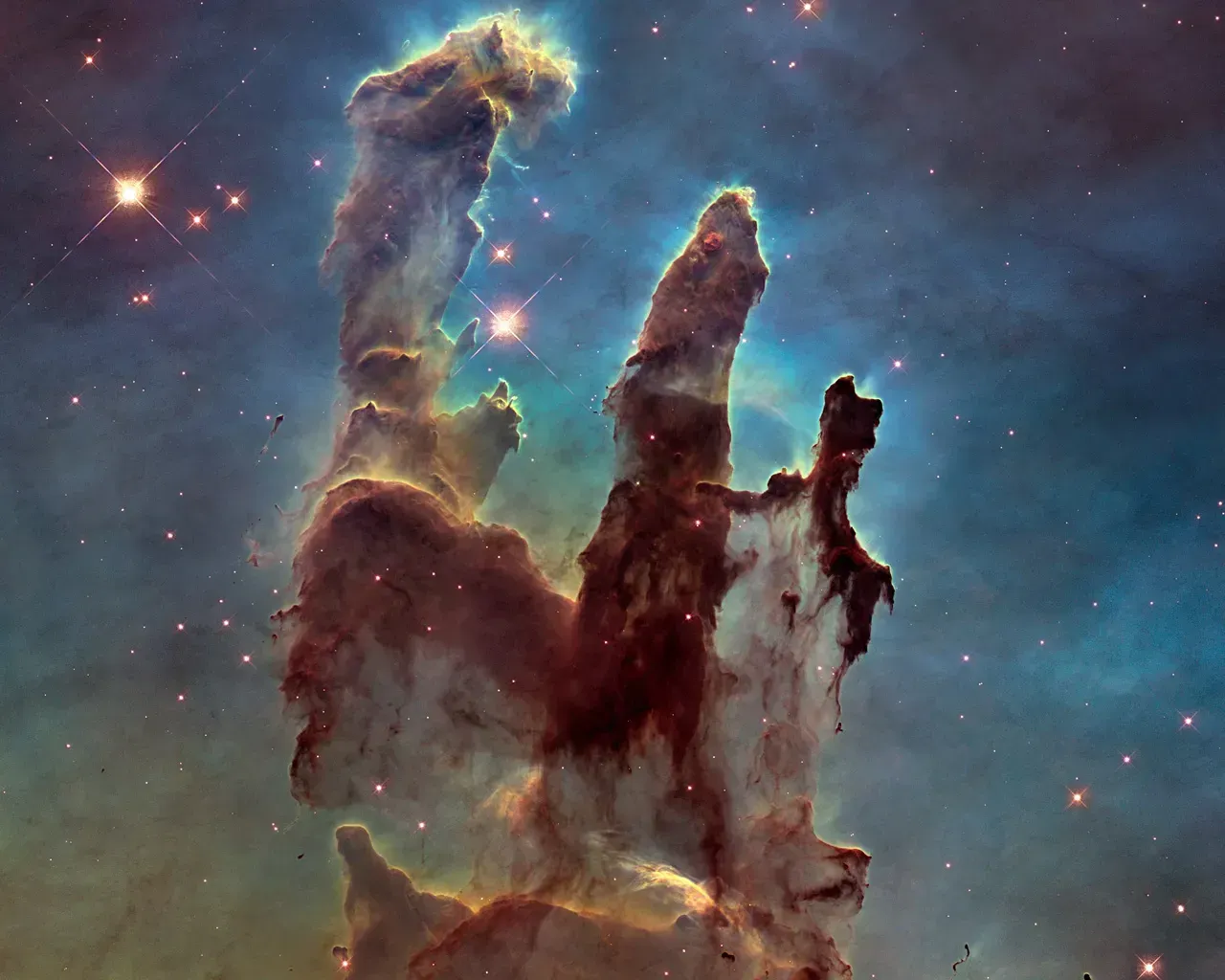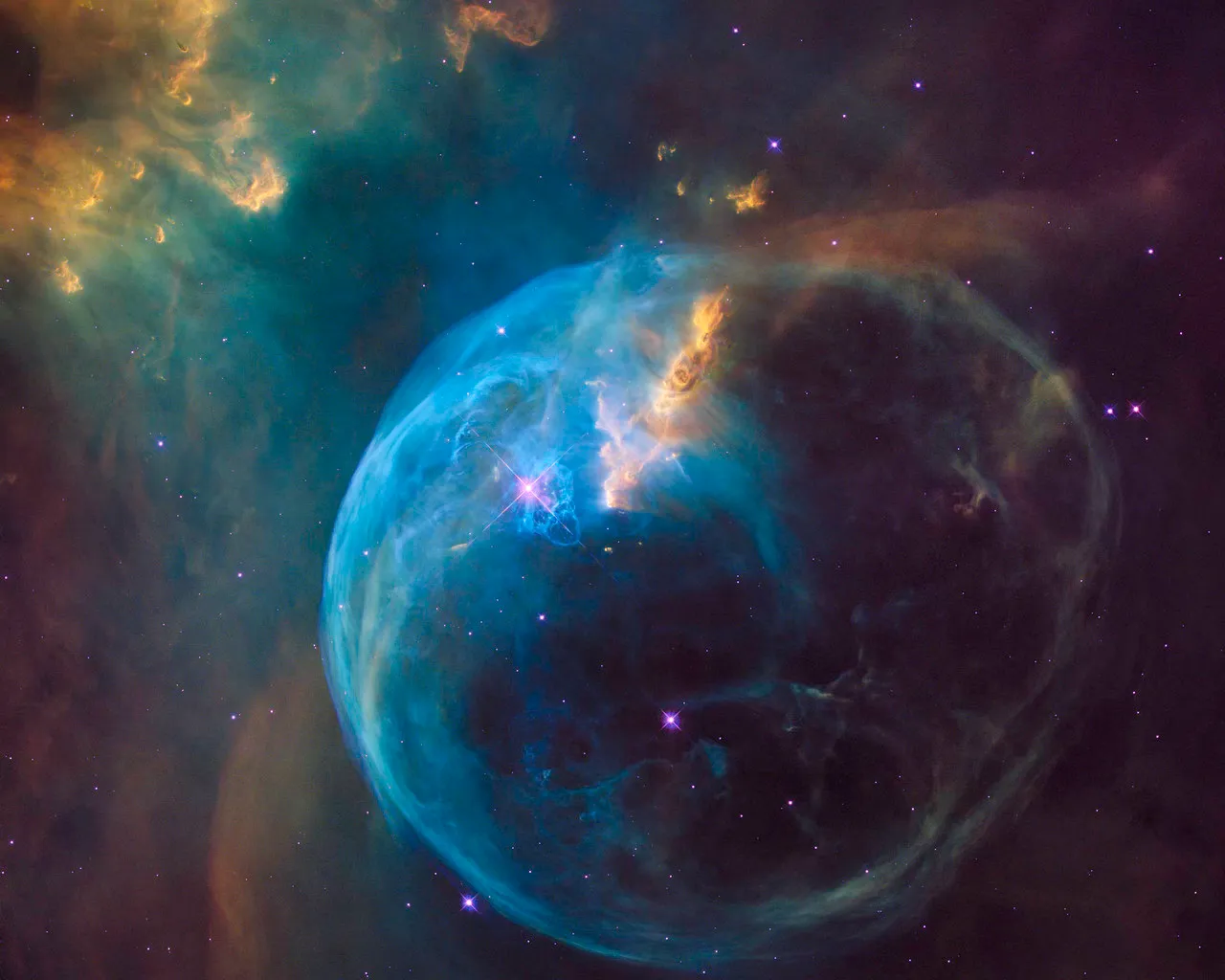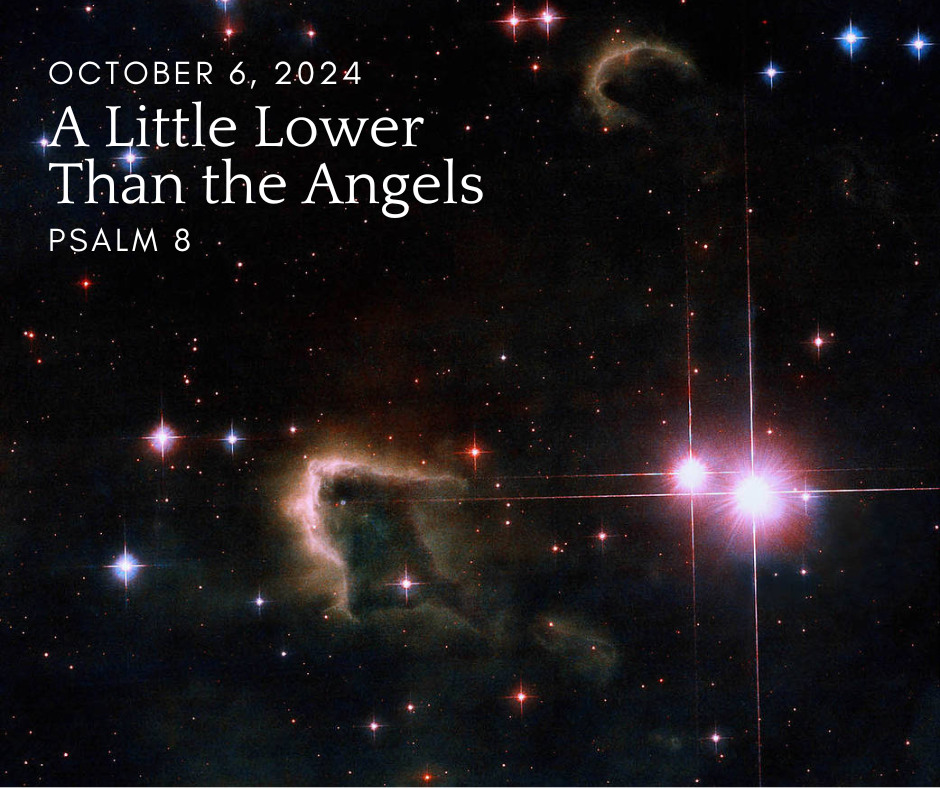Does the Universe Wink? Finding our place in the vast universe.
Lord, our Lord,
how majestic is your name in all the earth! You have set your glory in the heavens.
2 Through the praise of children and infants
you have established a stronghold against your enemies,
to silence the foe and the avenger.
3 When I consider your heavens, the work of your fingers, the moon and the stars,
which you have set in place,
4 what is mankind that you are mindful of them; human beings that you care for them?
5 You have made them a little lower than the angels and crowned them with glory and honor.
6 You made them rulers over the works of your hands; you put everything under their feet:
7 all flocks and herds and the animals of the wild,
8 the birds in the sky and the fish in the sea, all that swim the paths of the seas.
9Lord, our Lord,
how majestic is your name in all the earth!
-Psalm 8
Living in Maine has rekindled my interest in watching the nighttime skies. I didn't realize how impoverished I was, shielded from heavenly wonder by our well-lit suburban neighborhood. It brings me back to my childhood fascination with space. I watched Neil Armstrong's first step on the moon on a small 15-inch black and white TV. I dreamed of space travel, watched Star Trek, and drank Tang every morning. On a trip to an observatory, I saw the rings of Saturn and the Horses Head Nebula, and I tried to wrap my mind around the idea that a light year is 5.88 trillion miles.

In some areas of science, more knowledge removes the mystery, but with space research, the more we know, the greater wonder. Look at these images from the Hubble Telescope. The first nebula picture is called the Pillars of Creation. The nebula is an active star nursery with radiation and stellar winds shaping the pillars. New stars are forming within the clouds. This glimpse of creation still birthing new worlds shows us that the Universe is not a static reality created millions of years ago, but is still in process.
After Isaac Newton constructed laws of gravity and motion, there was a tendency to view God as the designer of a predictable and complete universe, who then stepped away and left the rest to humanity. God was like a watchmaker, as we were to keep up with the winding to make time tick forward. If the Universe is still forming, how can we view God as static, fixed, and easily pinned down by clear doctrine? I think it's hopeful to imagine that God is still speaking, "Let there be light of even more stars." If God is not finished with the Universe, then God is not finished with us either.

The second picture (above) is the Bubble Nebula. The Bubble Nebula is an emission nebula created by the intense winds from a hot, massive star at its center. The star, SAO 20575, is about 40 times more massive than the Sun. The bubble-like structure is formed as powerful solar winds push away surrounding gas and dust, creating a shell of glowing gas about seven light-years across. That bubble is over 41 trillion miles, equal to traveling around the Earth 1.65 billion times. Think of the frequent flyer miles!
From Earth, all the stars look the same. From a distance, they seem static enough for mariners to navigate the oceans. But the Universe is busy blowing bubbles. As a species, we barely scratch the surface of the Universe's beauty and powerful forces. Perhaps if we got away from the bright city lights and the glow of our screens, it would stimulate our imagination and curiosity to be more creative. If nothing is majestic, then we are stuck in our deadlocked ideology, our fear of new ideas, and the sense that there are not enough of things for everyone. If we can launch a telescope into space and see these wonders, we can figure out simpler issues like food security or how to get energy to power the world without destroying planetary life. Some people think our problems stem from pushing God out of schools or the public square, but I think we have a deeper problem: we have pushed God out of our imagination and creativity. We limit our possibilities by believing God is static and far away.
The Psalmist asks the obvious tricky question. In a universe light-years-vast, what are we that God might be mindful of us? We might think we are alone in the cold, dark Universe, living on an insignificant little planet. So, why not be selfish and enjoy life as we want? To heck with striving towards something better. Why would a God of a million galaxies pay attention to our little planet, our intractable wars, or what is happening to our relationships or feelings? Have you ever felt in prayer that your heartbreak is too insignificant for God when millions are displaced from their homes in Sudan or Gaza? Who am I that God would be mindful of me?
In Neil deGrasse Tyson's book "Astrophysics for People in a Hurry," he writes:
"The Universe is under no obligation to make sense to you. But from time to time, it can be remarkably accommodating, almost as if it has taken pity on us…[Every} now and then, it winks at us."
In spiritual terms, we might call this moment a mystical experience, a Divine revelation of our interconnection with this vast Universe. We could call this interconnection love. We are loved by a God who might be unfathomable yet still knowable, if even by a wink.
What does it mean if someone winks at you? If someone winks at me, I'm slightly startled and wonder if I saw things correctly. I might be both skeptical and intrigued. It can be playful, like you are an insider to what this person is doing or thinking. It might invite more relationship, stimulating curiosity without making promises, more like a "come and see," as Jesus often said to people with questions. Does the Universe wink at us in the twinkling stars? Does God try to get our attention by blowing giant gas bubble nebulas seven-light-years-wide?
The author of Psalm 8 thinks something is communicated to us from the Universe, "You have made us a little lower than the angels and crowned us with glory and honor." How much is a little lower? An inch or a light year? Genesis 1:27 says God created us in the image and likeness of God. We aren't gods, but there is some Divine DNA shaping us. We are mortal yet made with a bit of stardust. Therefore, like God, we are creative and capable of doing good and beautiful things. We can call this the theology of Original Blessing.
Our Calvinist forebearers were more skeptical of human potential. John Calvin believed in the total depravity of humans, meaning that every part of our being- mind, will, emotions, and body- is corrupted by sin. We are selfish, prideful, and rebellious against God. Therefore, we cannot save ourselves or do good on our own, but we must repent and throw ourselves to the mercy of God. If the Universe winked at us, we would think we own the place. This theology leans hard towards original sin, and there is no winking. God speaks more through burning flames.
There are days when I look at the events of the world and see much that looks like total depravity. Reinhold Niebuhr once said sin is the only theological doctrine you can prove by reading the morning paper. Notice he did not say original sin; we just often fall short of our God-given calling. Niebuhr was profoundly influential in my development in seminary. He reflected deeply on the questions of Psalm 8 about how we relate to God in his book "Nature and Destiny of Man." He believed that we live in this place of constant tension between being created in the image and likeness of God; and also being sinners who do terrible things to each other. Our spiritual path must embrace both aspects. If we lean too far towards thinking we are like God, we tend towards hubris and pride. We believe we are right; others are wrong, and try to bend the world to our desire and comfort. On the other hand, if we lean too far towards thinking we are totally depraved, we can fail to see our potential, and we hide in fear rather than act in faith. Much human anxiety comes from knowing we have so much potential for good, and yet we are limited, mortal, and can't see the big picture.
Niebuhr wrote a prayer to help people navigate this dilemma. "God grant me the serenity to accept the things I cannot change, the courage to change the things I can, and the wisdom to know the difference." Niebuhr was not thinking about Alcoholics Anonymous when he wrote the Serenity Prayer, but it fit, and has become the touchstone for dealing with addiction. It reflects that we are made a little lower than angels, that being entrusted with stewardship of the world requires courage to do the right things. And we are also mortal, limited beings, always in need of wisdom that transcends our limited experience.
This prayer may be exactly what we need for the year ahead. As we leave here today, carry the knowledge that though we are but a small part of this vast universe, we are still deeply loved, deeply known, and called to be stewards of creation. Live in awe of the wonders around us, and with courage, embrace your potential to do good. For every star that twinkles, every bubble that forms, may we be reminded: God is still winking at us, inviting us into a deeper relationship with the divine and with one another. Amen.





